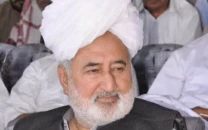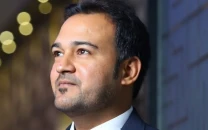The challenge of combating militancy
A robust anti-extremism strategy is needed to de-construct the intellectual antecedents that produce terror.

The writer is Vice-President Middle Eastern and South Asian Affairs at Stratfor global intelligence and a Fellow with the Institute for Social Policy & Understanding. The views expressed here are his own
The current highly charged atmosphere will dissipate (sooner or later), as it always does — until the next such unfortunate act of violence takes place, when this sequence is likely to be repeated. In this cyclical dynamic, the issue of how to actually deal with the radical entities that exploit Britain’s democratic freedoms, to spew their vile ideology, usually doesn’t get addressed. For the UK, the core problem is that the likes of Anjem Choudary (a British-born radical of Pakistani heritage), whose group was responsible for radicalising Adebolajo, deviously avoid prosecution because they themselves don’t indulge in violent acts but influence others who go on to commit murder in the name of religion.
Rigby’s brutal killing, however, appears to have finally steered the British government towards the path of clamping down on these radicals. At this early stage, it is not clear how the UK government will balance the need to protect civil liberties with the dire need to put characters like Choudary out of business. It will be some time before the British government will be able to successfully act against those who exploit democracy to subvert it.
While this incident is unprecedented for Britain, in Pakistan, such acts of terror occur with impunity. While Choudary and his followers constitute the fanatical fringe of the wider Muslim community in the UK, in Pakistan, there is no shortage of such extremists.
The actual terrorists are a smaller subset of the wider pool of extremists, who provide the environment in which the former can carry out their agenda of death and destruction. The victors of the recently-held elections are calling for talks with the country’s militants and without a clear strategy, which will likely prove to be disastrous. While the incoming government explores viable policy options on pursuing negotiations with militants, it should bear in mind that even the most successful negotiations will only lead to a temporary truce.
What that means is that the country may experience a lull of sorts in terrorism and militancy but extremism and radicalism will remain and thus, it is only a matter of time before there is a renewed wave of violence. Counterterrorism and counter-insurgency, while necessary, are not sufficient enterprises. These measures only help deal with the armed enemies of the state.
Likewise, de-radicalisation is also a reactive process where the state is trying to bring back those of its citizens who have been disarmed and need to be intellectually rehabilitated. Assuming it is successful, de-radicalisation, again, is a necessary procedure but not a sufficient one — for it does not tackle the root causes of violence.
Only through a robust anti-extremism strategy will the state begin to de-construct the intellectual antecedents that produce terror. Rooting out extremism requires the development of a counter-narrative of the role of religion in public affairs — one that acknowledges the democratic foundations of the polity, is authentically rooted in the Islamic tradition and is widely accepted as legitimate. Authenticity and legitimacy are key because such a narrative must be able to compete with and defeat the extremist interpretations of the religious texts.
While the physical war against militancy is a long-term commitment — one that could last a couple of decades, the much more critical battle is an ideational one, entailing a multi-generational struggle. Hence, it is crucial that the incoming government take stock of the magnitude of the challenges ahead and quickly move beyond vague ideas of negotiating with the militants.
Published in The Express Tribune, June 10th, 2013.
Like Opinion & Editorial on Facebook, follow @ETOpEd on Twitter to receive all updates on all our daily pieces.



















COMMENTS
Comments are moderated and generally will be posted if they are on-topic and not abusive.
For more information, please see our Comments FAQ